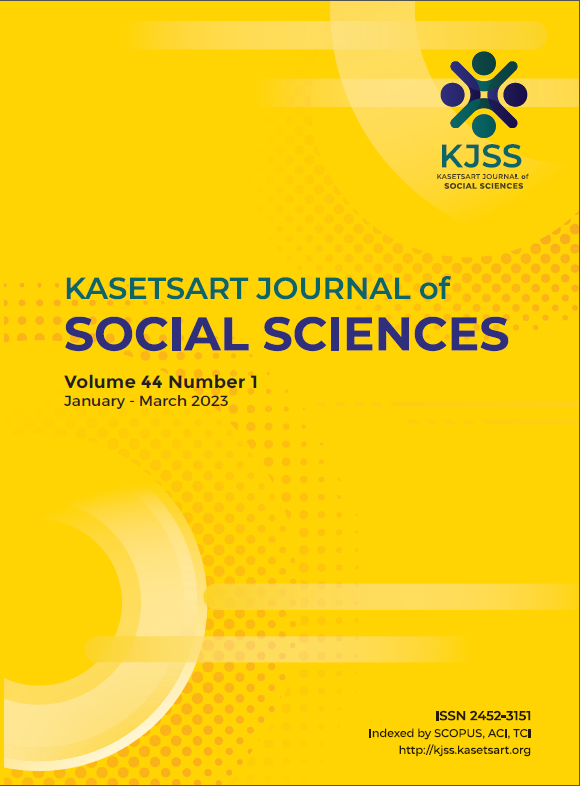Where multicultural worldviews begin: Development of Thai university students’ intercultural competence through their life experiences and formal education
Keywords:
a photo-elicitation technique, intercultural competence, multiculturalism, plurality, subculturesAbstract
Prior studies have focused on promoting Thai university students’ intercultural competence with a heavy emphasis on orientation towards Anglophone cultures in language classrooms, neglecting the importance of the cultural knowledge of members of subcultures, and providing a more comprehensive viewpoint from which to develop students’ intercultural competence. However, the potential sources for developing students’ intercultural competence are diverse, and simply focusing on enhancing students’ intercultural competence in the context of formal education may not be sufficient. When seeking to fill a gap in the literature, this qualitative study aims to explore Thai university students’ development of intercultural competence as a result of their reflection and introspection on their life experiences, and their enrolment in an Intercultural Communication course, with an innovative photo-elicitation technique integrated into online interviews. By following an integrative multi-level paradigm model for culture and Intercultural Communication, the findings offer new insights into participants’ significant growth and positive attitudes towards other (sub) cultures, which eventually promote their multicultural mindsets. These incidences can, arguably, be crucial for people from different cultural backgrounds seeking to live together in harmony. Taken together, the study has a range of implications for including non-native English speaker cultures and subcultures in material development and pedagogical practice in intercultural pedagogy in Thailand. The study also offers suggestions for further research into applying the integrated multi-level intercultural model as an alternative lens when cultivating intercultural competence, not only in Thai contexts, but also in other intercultural settings.
Downloads
Published
How to Cite
Issue
Section
License

This work is licensed under a Creative Commons Attribution-NonCommercial-NoDerivatives 4.0 International License.
This is an open access article under the CC BY-NC-ND license http://creativecommons.org/licenses/by-nc-nd/4.0/










